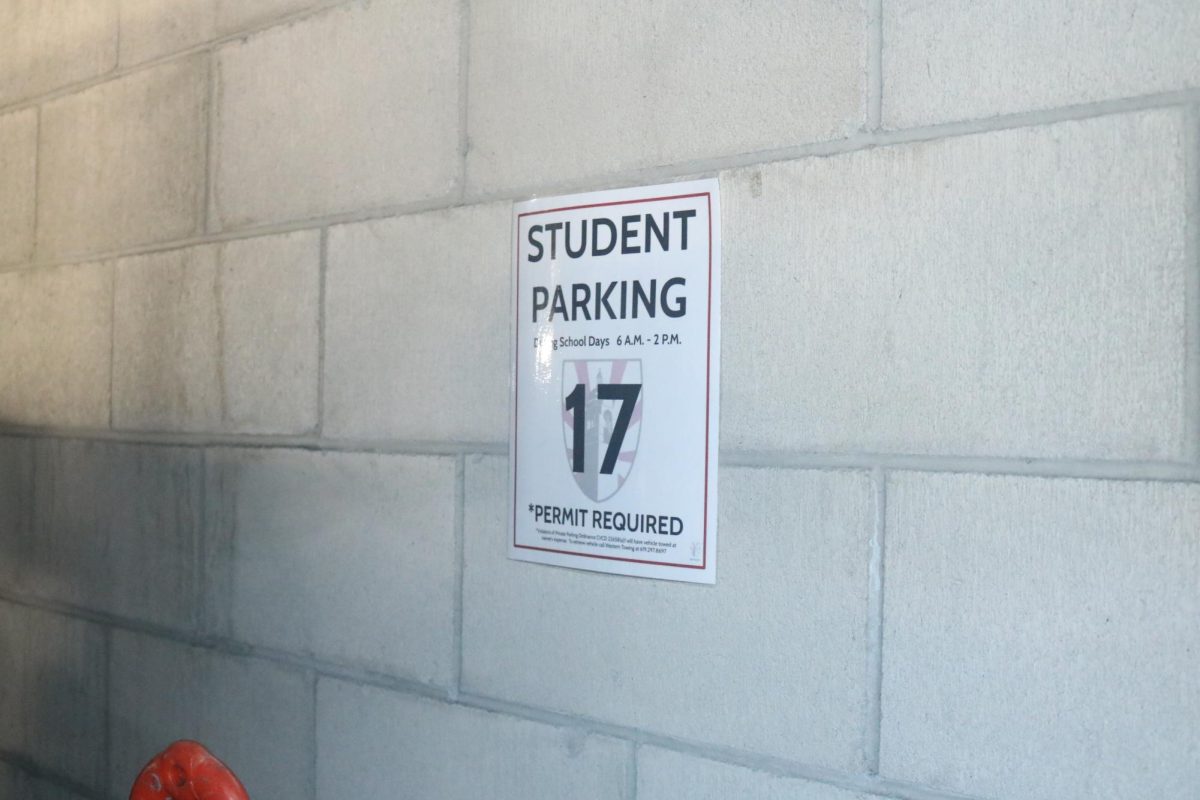From the moment we wake up and scroll through Instagram to when we finish texting our friends about our homework and finally go to sleep, phones seem to always be a part of our lives — but that is something Bishop’s is trying to change. On August 10th, the School sent out an email informing parents and students that a new cell phone policy would be in effect at the start of the year, banning phone use throughout the school day; and there have been mixed reactions.
The policy — created by Associate Head of School Mr. Michael Beamer, Assistant Head of School for Adolescent Learning & Development Ms. Janice Murabayashi, Assistant Head of School for Curriculum & Academics Mr. Brian Ogden, Dean of Students Ms. Michelle Shea, and Dean of Faculty Mr. Ben Heldt — was designed with the goal of fostering community connection, improving student mental health, and increasing focus and productivity. Many students have been pleased with the changes, but many others complain of small inconveniences and feel their independence is limited.
Ms. Shea explained that her main reason for supporting the phone ban comes from the belief that phones are “just so disruptive to thought.” She added that she doesn’t believe “that you can hold attention with a ding or a buzz or a flash always happening,” and “the whole intention is that it’s a notification. And so it notifies you and then your train of thought gets interrupted.”
Dr. David Moseley, a Religion and Ethics Teacher, has been taking phones at the beginning of class and putting them in a holder he’s nicknamed “phone jail” since long before the phone ban. Thanks to the “phone jail,” he says he has “noticed that attentiveness and engagement increased considerably.” With the phone ban now in place, he hopes to see these effects in every classroom, not just his own.
Dr. Moseley also believes that phones negatively affect connection and community. “I taught a summer school class last year and during the 15-minute breaks, the room was silent as all the 15 students just stared at their phones and never said a word to each other. I realize that we belong to virtual online communities, but there’s no substitute for face-to-face real life interactions…and I can see more and more students losing or stunting those basic social skills.”
The phone ban is meant to help students, but not just by changing external factors: the announcement email cited the Surgeon General’s advisory on the effects of phones on mental health as a reason for instituting the ban. “The data really does suggest that the more time that students — adolescents — are on their screens, their phones, their devices, the more adverse effects it has on their mental health and well being,” said Mr. Beamer. The National Institute of Health has published similar findings, stating that “several studies conducted among excessive cell phone users have validated the effects of problematic cell phone use, including digital stress, low self-esteem, worries and angers, loneliness, anxiety, depression and mood disorders.”
Some students sought help for their cell phone usage even before the ban, according to Mr. Beamer. “It’s important to know that some students, as we were thinking about this on the front end, asked for some help with their own management of their device, and it was clear to us that there was a certain percentage of the population that would welcome this and they felt that if it wasn’t the entire community, it would be very hard for them to curtail their own focus on their phone.”
As Librarian Mr. Brandon Warner — who wrote an article in the Daily Urinal supporting the phone ban — put it, “Sometimes an official rule is all it takes to help us make a private determination to do something more productive with our time.”
This ban also coincides with the passage of the Phone-Free Schools Act in late September, mandating that all public schools in California draft plans for phone restrictions by July 1, 2026, and update them every five years. The act was not the cause of the Bishop’s phone ban’s implementation, however, and Ms. Shea explained that “this has been in the mixer for a couple of years at least and it’s been a big discussion amongst schools for a while.”
Despite the ban’s good intentions, teachers and students alike recognize that there are some pitfalls. Ms. Shea herself acknowledged that “one of the complications is that everything we’re communicating is online. About a million years ago (because I’ve been here forever), I used to hand out weekly assignment sheets on a piece of paper and that’s not a thing now because it’s 2024. And so all of those communications, schedules, homework, everything is online… we don’t have a great solution for that.”
Amy Yan (‘26), who describes herself as not entirely against the phone ban but definitely not in favor of it, said that the policy’s main inconveniences arise from communicating with her mom and listening to music. “If I want to quickly text someone like my mom about when and where to pick me up, it is so annoying,” she said. “Obviously it’s easy to plan these things ahead of time, but traffic is super unpredictable and it’s nice to have some sort of warning or communication.” She added that she doesn’t like using Spotify on a laptop because it’s “so much worse to have to leave my schoolwork to switch playlists or skip a song instead of just pressing a few buttons on my phone.”
Another point of contention is free time. Some students believe that if they have a free period or are done with their homework, they should be allowed to do whatever they want to relax, including scrolling on their phones. Ms. Shea has a solution, but she admits not everyone will like it: “Sometimes you have to say ‘I’m just gonna stare at the wall now.’ But you have developed in an era when just sitting is not a thing, and so I imagine that’s really uncomfortable.”
However, Amy argues that sitting and staring at a wall is simply not a thing she has seen people do; instead, they will always replace their phones with other screens, such as computers. “I see so many lunch tables where everybody just has computers out, and it reminds me of those cardboard barriers you put up during a test,” she said. “The huge screens are like a physical wall that divides everyone, which is arguably way worse.”
Hanna Liang (‘25), a Daily Urinal editor who has written about the phone ban, believes that one reason the phone ban is unfair is because “it treats twelfth graders like sixth graders.” However, according to Ms. Shea and Mr. Beamer, the enforcement would be much too complicated if every grade had different rules, and this was the simplest way to ensure it affected the most people in the most positive way. “I just thought they would be more considerate of us as independent students,” said Hanna. “That’s what they raised us to be.”
However, students don’t just criticize the policy; many want to help improve it. And according to Hanna, that starts with enforcement. “Either have it and enforce it or don’t have it at all. People won’t be happy about it, but it will force them to find other ways to entertain themselves, which can be beneficial. But you have to enforce it.”
Mr. Warner added that his biggest issues with the ban “are mixed messaging about phone use at school. For instance, many assignments involve filming or audio recording at school. Often a phone is the most convenient and efficient tool for the job.”
Amy also believes that a time limit could be the most effective solution. “If someone is just on their phone for a few seconds they’re clearly just checking the time or texting someone quickly. On the other hand, if they’re obviously scrolling on their phone for 5 minutes during lunch, that would be when they should put it away.”
The faculty group that spearheaded the implementation of the policy plan to conduct focus groups to see how students feel after a couple months. Throughout the process they want to emphasize student voice, regardless of whether it is positive or negative. “Hanna’s DU article was really interesting,” said Ms. Shea, and she and the rest of the administration looks forward to hearing what many more students have to say.








